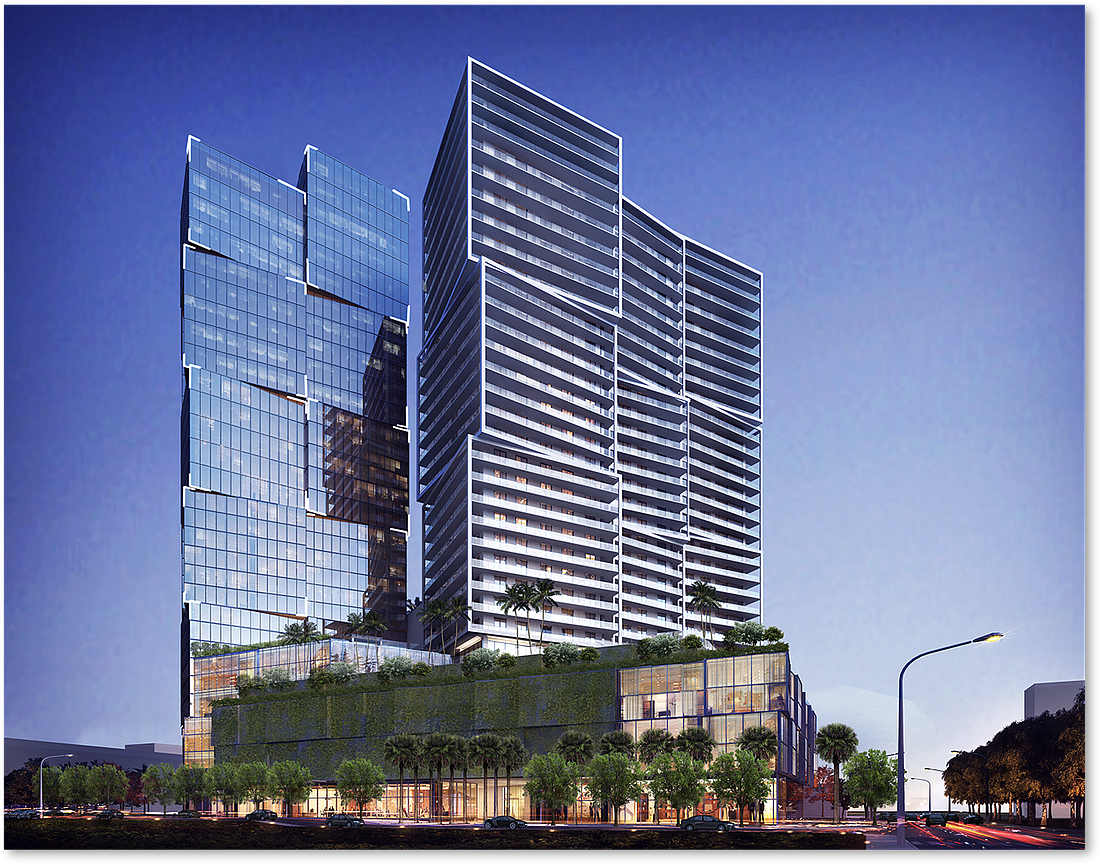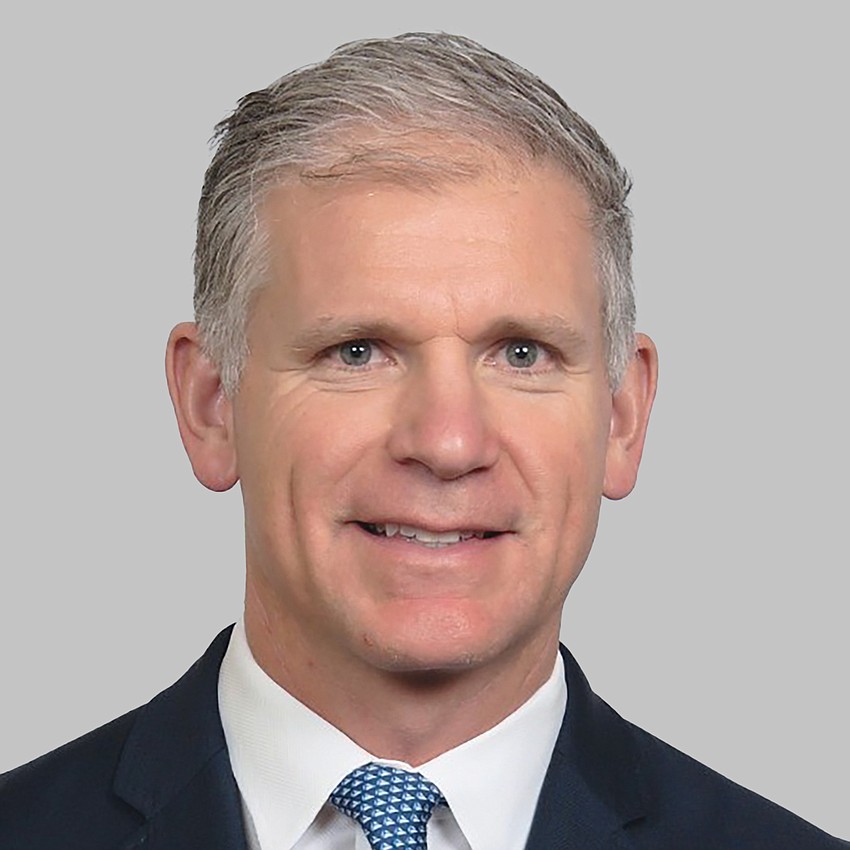- October 22, 2024
-
-
Loading

Loading

As 2023 comes to an end, the Business Observer spoke to four experts to get their thoughts on what to expect in 2024, and beyond, on subjects — conservation, capitalization, consumer and artificial intelligence — that matter to the commercial real estate industry and the economy.
Matt Mitchell is a senior managing director for investment sales at Berkadia in Tampa.

The drop in the 10-year treasury rate over the past 30 days and the expectation that the Fed will cut rates in 2024 is very welcome news for owners and developers of multifamily properties. I expect lower interest rates will lead to some cap rate compression as we get into the new year, which will facilitate more sales activity for existing assets.
However, the development pipeline will remain somewhat constrained since construction costs remain high and rent growth has tapered off, so most projects still don’t pencil to high enough yields to attract capital. Good sites in locations with limited new supply can get done, but many deals will need to see construction costs come down and evidence that cap rates are decreasing before the deals make sense to move forward. We also need to get through the current bottleneck of new supply that is currently delivering before rents grow enough to generate higher yields for investors. I think the pipeline will remain constricted through most of 2024 but going into 2025 and 2026 the stars will align for new development to pick up again.
Patrick Murphy is founder and CEO of Togal.AI Founder and CEO a construction technology company in Miami.

So much of construction is documentation these days. Everything from a set of plans to what we call a specification book which will go into an in-depth description of all the specs — the exact closet drawer, the millwork color, the type of tile in Bedroom A versus Bedroom B. Every single specification all written out in 1,000-page documents. Your estimates, your schedules and bid books, all the contracts, not only with the owner but with your vendors and your subcontractors. Thousands of contracts. My point is, on commercial jobs or large residential jobs, 10s and 10s of 1,000s of pages of information go into each of those. And it’s very hard for any single human to read, interpret, understand, memorize all that information and see that how they interrelate.
Large language models are great at that. The user just has a conversation and says,
'Hey, who's responsible for installing the windows on the 10th floor? What's the appliance package in the penthouse? What are the current parking curbs to be installed?' Whatever the question is, you get answers based on the information that you uploaded in human terms that actually make sense. That's going to continue to improve. And the large language models will continue getting better and understanding each industry better and better. So obviously, we're talking construction here, but the same will be true for medical, for insurance, for hospitality. Whatever you name, it will keep getting better and better. Construction in particular, because it's so text heavy and documentation heavy, will really progress with large language models. Just take one thing in particular. Construction contracts take a lot of time. I think that'll be dramatically improved going forward because of this deeper understanding of large language models.
Dean Saunders is founder, managing director and senior advisor at SVN Saunders Ralston Dantzler Real Estate in Lakeland.

Florida is funding all types of infrastructure to accommodate our growing population. The State Legislature must continue investing in Florida’s green infrastructure. Places for Floridians to recreate — hunt, fish, camp. Florida voters have felt strongly about this since 1990, when they voted to create Preservation 2000.
As there is more demand for land, and as people continue to move here, the cost of Florida land has rapidly increased. As an example, since the passing of Preservation 2000, ranch values have quadrupled. Funding is not keeping pace with current land values and should likely be quadrupled to maintain conservation efforts.
R. Christopher Jones is a professor of economics at the University of South Florida and president and chief economist of Florida Economic Advisors in Tampa.

Consumers are still going to struggle to make ends meet. I don't see 2024 as being a year where things are significantly better for consumers in terms of having more real income to spend. And even though the job numbers, the employment numbers seem relatively positive on the surface, it's one of these things that if you start peeling the layers of the onion you realize that a lot of the job creation that has occurred over this past year, in the past couple of years, have been in industries and occupations that are not necessarily high wage, high income occupations. A lot of it is in services, lower end services, leisure and hospitality and retail. You know, gaining back a lot of the jobs that we lost from COVID, because of the policies implemented. But there's a bit of a misconception that the job market for individuals who are professionals, or seeking higher income type positions, is great. And I would counter that argument, I would say it's somewhat tepid, at best.
And so to those ends, I think this is going to be a year where there's going to be a lot of caution exercised by consumers, where consumers are putting off making big ticket purchases, especially in the area of housing or even moving to a new place. Because new home prices and rents for apartments and other rental units are still going up. And they're already at a point where the typical household are at their breaking point with being able to handle those expenditures.
So, I don't want to be a purveyor of gloom and doom but overall, for consumers, I don't really see 2024 as being a breakthrough year in terms of having an increased ability to spend more in the market. I think they're going to be forced to spend more on things because we're going to continue to see inflation through 2024. And with the political uncertainty that we have, I think our economic growth will be lower and we could even have a quarter or two toward the middle to the latter portion of the year where economic growth actually turns negative. I'm not necessarily saying the sky is falling, but I don't see 2024 for consumers or the economy in general as being a boom year. I kind of think this is a hold, let’s wait and see what happens, we go from there year. Which means some money's going to sit on the sidelines.